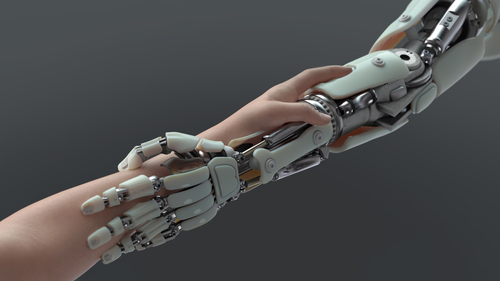Why it is important to ‘think human’
Dr Chris Cooper – General Manager Middle East and Africa at Lenovo Data Centre Group, on why businesses should consider the human impact when implementing new technologies

Why do CIOs and their leadership teams need more than just a passing understanding of the human-centric approach to tech implementations?
The cost of businesses not thinking human is that technology that should be empowering, is instead inhibiting progress. This often results in many employees being overwhelmed by the volume, pace of change and complexity of new technologies, stifling productivity both of employees, and the tech itself. The potential of emerging technologies such as AI, IoT and Blockchain is huge, promising greater innovation and improved productivity. But without considering how their adoption impacts employees, this potential will remain unfulfilled. It is not just CIO’s who need to start thinking human. The whole IT industry has a part to play in helping technology reach its true potential through improved interoperability, greater use of standards, and more user analysis and automation, so that the balance we see today between both inhibitive and enabling technology, swings towards more human-centric technology in the future.
How can you use tech for employee-centric strategy?
By first asking the right people the right questions, before adopting new technologies. Rather than “how much does this cost?”, the focus should be on “does this tech have the right features, functions and benefits for the user?”
But it is also about ensuring that the training, supply chain, change and communication management, leadership KPIs, organisational strategy and policy, and the post-analysis of a technology rollout are all aligned with a people-first ethos. It is not just about how easy it is to use, but whether it will solve challenges, rather than create them, and can be universally adopted in an intuitive and inclusive way for both employees and customers.
of a technology rollout are all aligned with a people-first ethos. It is not just about how easy it is to use, but whether it will solve challenges, rather than create them, and can be universally adopted in an intuitive and inclusive way for both employees and customers.
Which new technologies will drive up the value of employee technologies like digital workspaces?
It is important to recognise that the digital workplace/space is a constant, continuing effort, rather than a final state. Many of today’s tech, will help to shape virtual work including edge, AI, IoT etc. because each has its own benefit and value. The key, however, will be the interconnectedness of all these technologies. That is why Lenovo’s mission is to be a leader and enabler of intelligent transformation in order to deliver this type of ‘Smarter Technology For All.
In your opinion, which technologies will shape the new normal?
Those that are ‘Smarter’. This means that they are always connected, seamless, agile, flexible, easy to collaborate, adaptive to your needs, reliable and with quality performance and with enhanced security and privacy.
Are you seeing any change in the CIO priorities now?
The pressures on every C-level Execs in all industries is changing – it’s one of enhanced flexibility and the ability to respond in ways that they possibly never considered before. This means they are being forced to look at new ways of accomplishing their goals and adapting to change. Digital Transformation investments have become key initiatives in this journey of adaption. The need to have more flexible ways of managing the needs of infrastructures and applications has driven an increase in the reliance on Cloud offerings and proven a healthy opportunity for the hyperscalers already invested in the countries. Increasingly more focus is now placed on the promise of Edge and IoT offerings as the markets recognise the shift in data generation and processing outside the traditional datacentres. The vast growth in newly connected devices is having a major play here.





